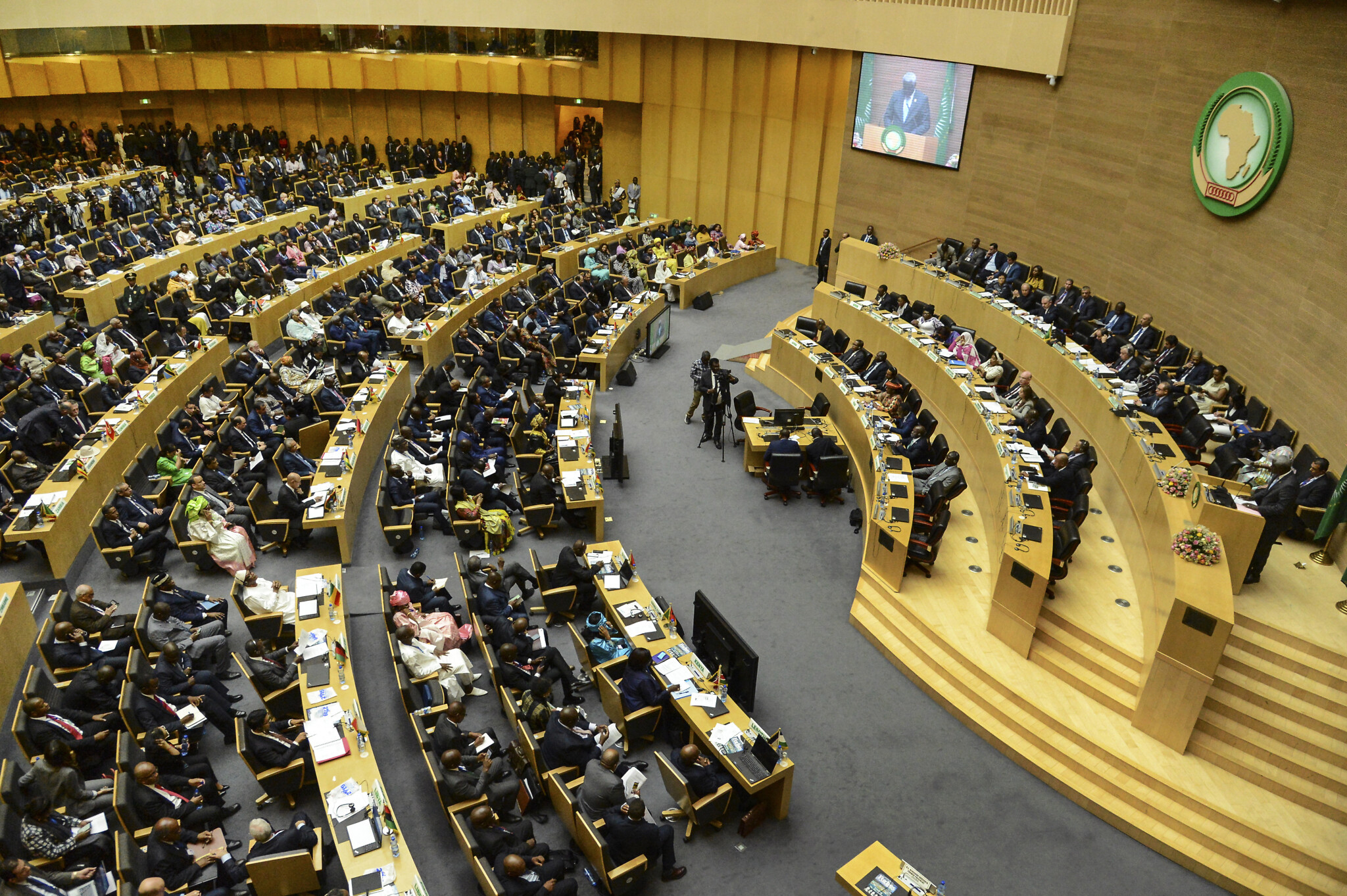
Israel

Victory as Israel remains AU observer
The debate about Israel remaining an observer at the African Union (AU) has been suspended, with the organisation instead forming a committee to re-examine the issue.
And in his official remarks on 6 February 2022 at the summit in Addis Ababa, AU Chairperson Moussa Faki Mahamat defended his July 2021 decision to grant Israel observer status.
He also criticised those who had campaigned against it – possibly pointing to South Africa – and implied that they had double standards.
The former Israeli ambassador to South Africa, Arthur Lenk, told Israeli media, “This is a loss for the extreme countries Algeria and South Africa, who tried to railroad the rest of the continent into something the continent doesn’t want. It’s clear that they don’t have the two-thirds vote that they would want, and in any case, the AU doesn’t vote, it reaches consensus.”
Lenk said that if the AU wanted to have influence in the Middle East, then building a deeper relationship with Israel was crucial, “and that seems to be the path we’re on”.
Fake news about the decision was quickly spread on social media, especially in anti-Israel quarters in South Africa. From the spokesperson for the department of international relations and cooperation (DIRCO) to the Palestinian ambassador in South Africa, politicians twisted the news in a last-ditch attack on Israel.
But back in Ethiopia, Mahamat held firm, explaining the four reasons why he had granted Israel observer status. The first was the high number of AU member states that recognise Israel. “The number doesn’t leave any doubt. Forty-four members of our organisation recognise Israel and have established diplomatic relations with that state,” he said. “Seventeen have opened embassies in Tel Aviv. Twelve have opened consulates there, not to mention that a large number of African states have opened their markets and economic space to Israeli enterprises and signed co-operation agreements in fields such as education, defence, security, intelligence, nuclear co-operation, agriculture, technological innovation, health, economy, and finance.”
Four-fifths of AU member states had developed a relationship with Israel, he said, and the observer status was “a faithful reflection of a tangible, irrefutable reality: that of the recognition of Israel on a very large scale in Africa”.
The second reason was because of “the number of member states that expressly asked for this accreditation. This appeared to me to be larger than that of the member states that didn’t recognise Israel. Which number should I comply with? The majority or the minority?”
The third motivating factor was the AU’s support for a two-state solution, which it could push for through Israel’s observer status.
The fourth reason was the role that the AU could play in resolving the conflict. “Do we have less confidence in our organisation that we cannot imagine that it can play a role in the resolution of a conflict which concerns us politically and emotionally?” he asked. “Why should we deprive ourselves of the use of a political and diplomatic tool to contribute to peace between the two peoples? Why recognise this right to an African or non-African state from elsewhere and deny it to the AU?”
Possibly pointing to South Africa, he said, “Frankly, I find it hard to understand the consistency of this rejection with the recognition of Israel by any member state whose national flag flies in the heart of Tel Aviv and which hoists, in the heart of its own capital, the Israeli flag while organising in its honour a grand ceremony of presentation of credentials. What is this logic that allows a member state to enjoy the recognition of a state at home and to refuse it to the organisation whose overwhelming majority recognises this state? Frankly, I would like someone to explain this kind of double standard to me.”
Finally, he criticised those who had campaigned against the decision. “I cannot fail to stress the extent to which I find it inadmissible for member states to go and sign petitions with other states, which aren’t members of our union, against any decision by one of our organs. There is undeniably a real double fault here – of those which are members of our organisation and of those non-members to whom we have granted observer status and who have arrogated to themselves the right to publicly criticise our decisions. This attitude of contempt for our organisation is unacceptable and truly reprehensible.”
Meanwhile, DIRCO spokesperson Clayson Monyela was criticised for spreading fake news when he tweeted, “The African Union assembly has suspended the unilateral decision by the chairperson of the AU commission to grant Israel observer status.” He later deleted the tweet, saying “Apologies for the earlier confusing language. I’ve deleted the tweet. The statement should read, ‘The AU summit has deferred the final decision on Israel’s observer status in the AU to a committee of heads of states.’”
The Embassy of the State of Palestine Facebook page released a statement that was also fake news. “The ministry of foreign affairs and expatriates welcomes the decision of the African Union to suspend granting apartheid Israel an observer state at the African Union,” it said, in clear denial of reality.
Where to from here? “Observer status for Israel remains intact for now,” said local political analyst Steven Gruzd. “The committee to study the issue has both Israel supporters like the Democratic Republic of the Congo, Rwanda, and Senegal, but also hardline opponents in Algeria and South Africa. The AU is deferring a divisive decision for a year. That will really tell whether Jerusalem’s Africa policy bears fruit.”
Said local political analyst Daniel Silke, “The fact that Israel wasn’t excluded shows there was sufficient resistance to South Africa and Algeria [trying to exclude Israel]. It also shows that South Africa’s influence in the AU isn’t what South Africa thinks it is. The broader diplomatic push to recognise Israel remains the predominant force in the AU.” He said the year of review gave Israel an opportunity to strengthen her relationships with Arab and African countries further.
“In the end, there’s a certain ‘kicking the can down the road’, and ‘let’s evaluate this again rather than split the AU on the issue’, and I think there was a desire to keep relative unity in the AU,” said Silke. “So this was a compromise that all could agree on, at least for the moment.”
Asked if South Africa would continue to lead the campaign against Israel’s observer status at the AU, Gruzd said, “South Africa won’t let this one die quietly. It has been incensed and implacably opposed to the observer status decision by the AU commission chairperson. I don’t see it giving up the fight so easily.”











irvine
February 10, 2022 at 2:50 pm
viva israel,viva